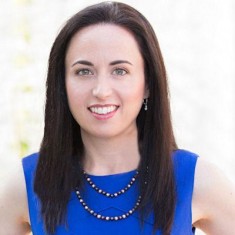13 Things Mentally Strong People Don’t Do – Book Review
Posted by Mitch Mitchell on Aug 25, 2015
Sometimes you're going to get a surprise you're just not expecting and it's going to be wondrous. In my case I don't remember the full beginning, but I somehow got connected to a young woman named Amy Morin on Twitter, and I saw that she'd written a book titled 13 Things Mentally Strong People Don't Do. I don't know why but my mind said I had to buy it and read it... possibly because when I took a look at it on Amazon the electronic version was on sale at the time; any time you can get a deal right? 🙂
 |
The title is pretty self explanatory, and I can tell you that this isn't a fluff book. She's a licensed clinical social worker, thus has worked with a lot of people on psychological issues of all sorts, many of them involving people who just aren't at peace with themselves for some reason.
There are a lot of stories in the book highlighting some of the problems people saw her about and how she helped guide them into more positive ways of thinking, something y'all know I'm big on. I'm assuming that the names have been changed to protect the innocent for the most part.
What's really intriguing is that early on in the book we learn that Amy had to get through some of her own personal struggles as it involved losing family members. Her mother passed away suddenly when she was 23 years old, and three years later her husband passed away suddenly also, strangely enough, after visiting the same auditorium to watch a basketball game as her mother; I think that would have freaked me out. Then a few years later, after marrying again, her new husband's father was diagnosed with cancer. It was during this time that she sat down and came up with the 13 skills, which started as a list that she fleshed out over time.
Basically, the 13 skills lead towards what she identifies as "mental strength" and how it can be developed if one can learn how to control thoughts, behaviors and emotions. She acknowledges that every person handles things differently and that finding the proper mental strength comes easily to some and is harder to attain for others.
The 13 skills lend towards ways of identifying how one might be able to change their lives for the better. In her own words, they're "meant to help you find better ways to cope with life's challenges so you can avoid these pitfalls".
The list is presented in a different way than what we're used to. Instead of telling us what mentally strong people do, she tells us what they don't do; it's a pretty powerful way to get us to start to think about things. Of course, once you've gotten into the meat of each point, she gives you both sides of the ledger; that's pretty fair I think.
 |
I'm not going to list the 13 things here because you can see them by following the link above. However, I am going to mention that only thing that I kind of didn't totally agree with. I understand her main statement, but some of the examples she uses go against some of the things I say that people who are having difficulties with their own identities need to do and think about.
It's #12 on her list:
I fully agree with that statement; the world gives all of us what we earn... well, most of us anyway. 🙂 However, I would disagree with the idea that if you believe in these particular concepts that it means you believe the world owes you something:
* You believe you were born to be successful
* You believe you deserve to be happy
* You think you've dealt with your share of problems in life and it's your turn to have good things happen to you
* You consider yourself an expert in many things
* I deserve better than this
* I'm more valuable than this
* I was meant to be highly successful
* Good things will come my way
Now, I do understand context, so I know what she was doing and saying when using these particular examples. However, I tend to deal with a lot of people who often seem like they don't have enough self esteem to believe in themselves at all.
Thus, when I come from a motivational point of view, I try to get people to believe in themselves, to believe that they're as good as anyone else, probably better in some ways. She even mentions in that same chapter that a helpful thing for people to do is develop healthy amounts of self esteem.
Her point here is to not believe the world owes you something just because of who you think you are because that might not be who you really are. I'm just one of those folks who will sometimes look at certain phrases and, without a bit more context and balance, see them as something else, positives instead of negatives and vice versa.
Small point, but I figured that since it's the only thing in the entire book that I questioned, which means I had to get through 80% of the book before I encountered anything I didn't totally agree with, that it was worth mentioning. 🙂
Other than that small bit of counterpoint, I think this is one of the best books I've read this year, and the suggestions it offers, along with the stories, makes this a definite must-buy book. It also seems I'm not alone as it's become a best seller and has been translated into 20 languages; if only my book would do a 20th of this kind of business. lol
I don't usually like surprises; this is definitely the exception. Thanks Amy; may I call you Amy? 😉

